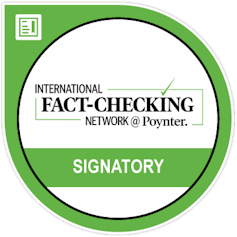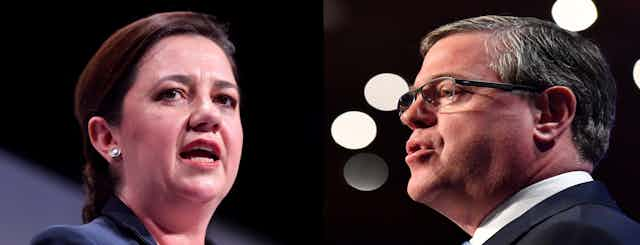The higher the stakes, the more outlandish the claims. And the stakes are high in this year’s Queensland election, with major and minor parties battling it out over employment, environmental and economic concerns in a campaign with no clear front-runner.
Thanks to the support of James Cook University, The Conversation will be on the ground in Townsville to hear exactly what claims are being made by politicians of all stripes in the lead up to polling day on November 25.
With your help, we’ll identify the most questionable claims and test them against the evidence, working with some of Australia’s leading academic experts to cut through the spin, half-truths and misinformation to bring Queenslanders information they can trust.
Importantly, we want to hear from you, our readers. What’s the most pressing issue for you in this election campaign? What claims do you want to see fact checked?
Facebook posts and advertisements, pamphlets, posters, robo-calls and town hall speeches: all of these are fertile grounds for fact checks. With your help, we can weed out the claims most urgently in need of verification.
When you see a ‘fact’ you’d like checked, let us know. Send us the statement, the date it was made and a source, if possible. That might be a link, a screen-shot or a photo.
The Conversation’s FactCheck unit has been running continuously since 2013, and we’re proud of our method. Our experienced journalists work closely with some of Australia’s most respected academic experts to test leaders’ claims against the best available data and scientific research. Our FactCheck authors bring years, and often decades, of subject-level expertise to the task.
After being rigorously researched, verified and tested from all angles, each FactCheck is subject to a blind review from another academic expert, who analyses the article without knowing the author’s identity. This is a valuable process that ensures the integrity and accuracy of The Conversation’s FactChecks.
These are just some of the reasons our FactCheck unit was the first in Australia and one of the first two worldwide accredited by the International Fact-Checking Network, an alliance of fact-checkers hosted at the Poynter Institute in the US.
We adhere to a code of principles which require non-partisanship, fairness, transparency of funding, sources and methods, and a commitment to open and honest corrections.
We’re not about the “gotcha” moment. We go to these lengths because we want to provide accurate information, and correct the record if we’re being misled. We’ll be closely watching all the players in this Queensland election campaign, and as always, every politician and public figure will be given the right of reply.
Please spread the word, and help make sure misinformation doesn’t play a role in the Queensland election.

The Conversation’s FactCheck unit is the first fact-checking team in Australia and one of the first worldwide to be accredited by the International Fact-Checking Network, an alliance of fact-checkers hosted at the Poynter Institute in the US. Read more here.
Have you seen a “fact” worth checking? The Conversation’s FactCheck asks academic experts to test claims and see how true they are. We then ask a second academic to review an anonymous copy of the article. You can request a check at checkit@theconversation.edu.au. Please include the statement you would like us to check, the date it was made, and a link or a photo if possible.

